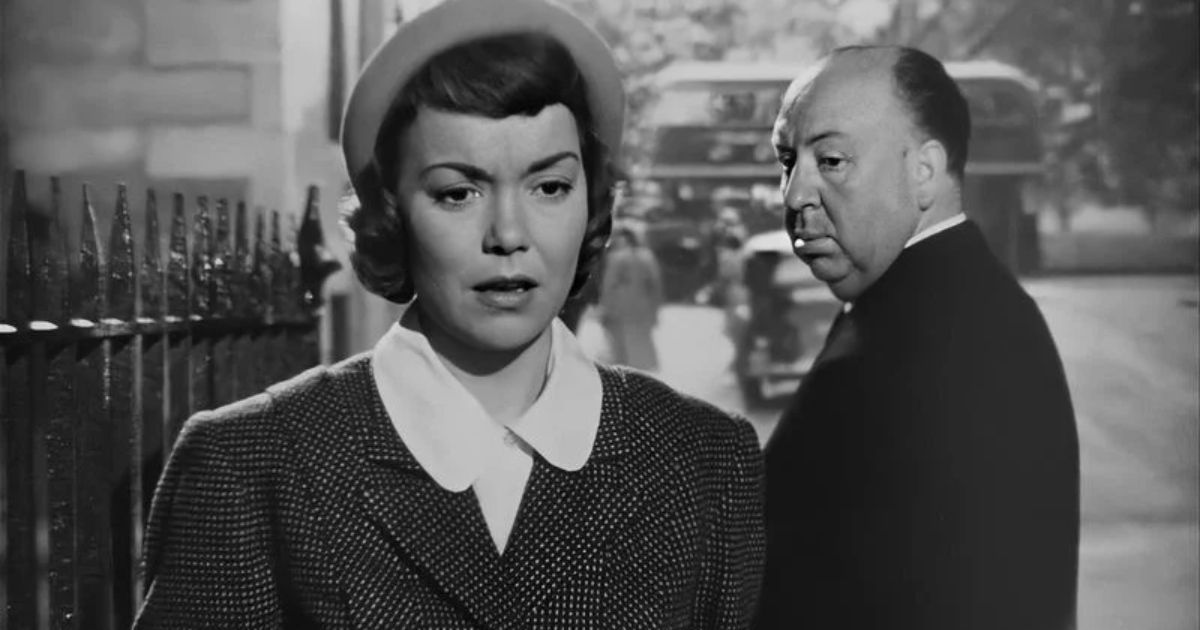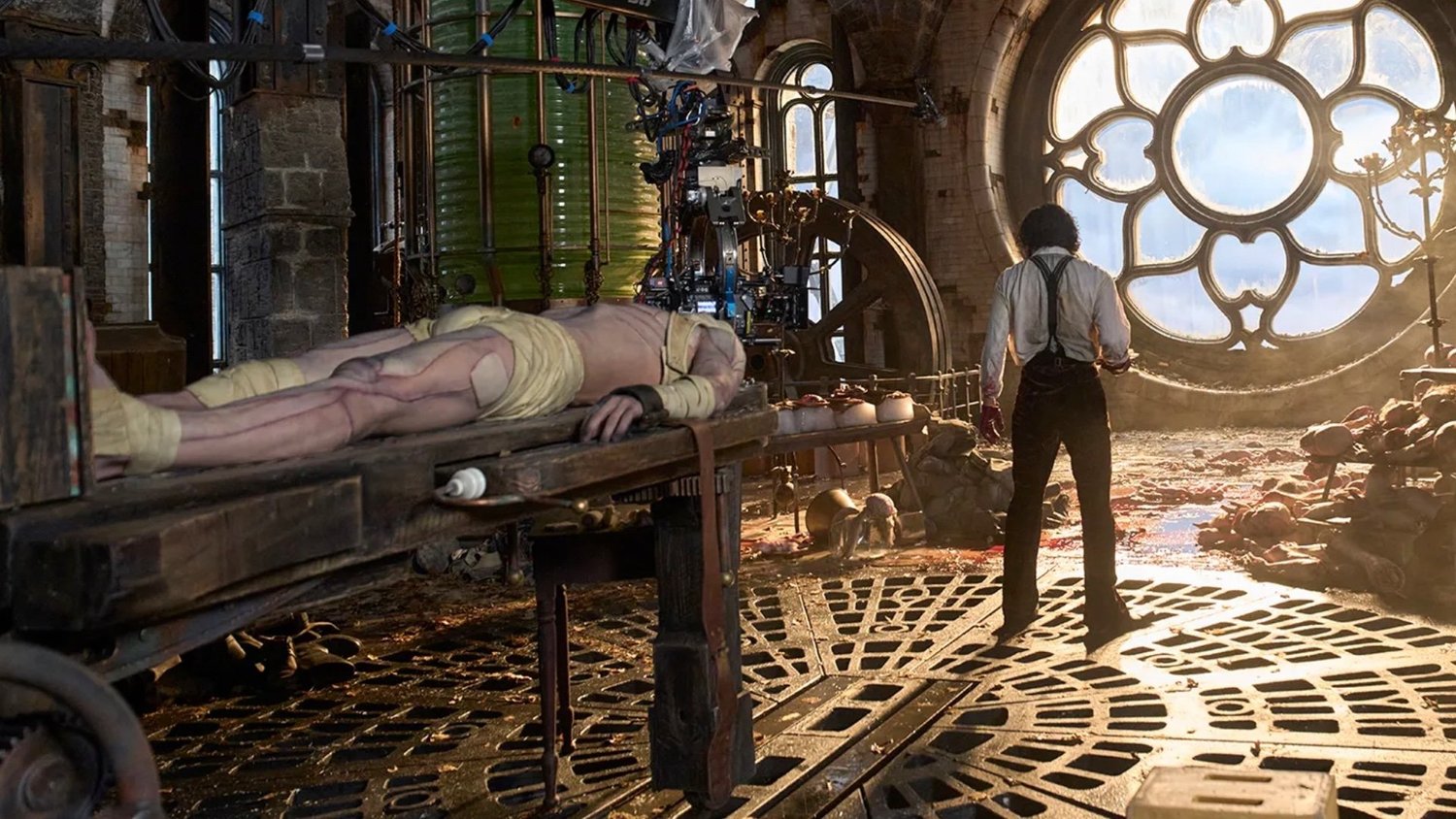
Fear of Authority and Female Sexuality
Mar 4, 2023
While he’s best known as being the “Master of Suspense”, Alfred Hitchcock is also widely considered to be one of the most influential filmmakers in history. It’s easy to see why when you consider that his career spanned almost 60 years and included more than 50 feature films.
Throughout his vast body of work, there were often many repetitive themes and plot devices. For instance, trains featured heavily in many of his films for the distinct reason that he had a pronounced interest in them from his love of geography, maps, railways systems, and tram timetables that went back to his early school days. Many of Hitchcock’s films are timeless and he’s been studied extensively across the world, since there are often parallels between his experiences and how they were reflected on screen.
Two themes that were also heavily present in his films were fear of authority and feminine sexuality. Like his affinity for trains, these themes were also rooted in events from his past that informed how he later worked them into his art form.To explore and understand why these two themes were so influential in his work, we must, therefore, first understand some of the events that shaped his interest in them.
Hitchcock’s Formative Years
NBCUniversal Television
Alfred Hitchcock was born to a working class family but had a wealthy uncle who opened his eyes to class divisions in society. One of the famous stories from his early childhood that Hitchcock loved to recount during interviews was the details of the notes his father would give him to take to police stations after he committed a minor transgression when he was five.
Related: Best Alfred Hitchcock Films, Ranked
According to him, he would hand these notes to a policeman who would then lock him up in a prison cell for a short while and say that this was what happens to naughty kids. He later recounted that these events left him with a permanent fear of law enforcement, to the point of never even driving, out of fear of ever receiving a ticket. It makes sense, then, that so many films feature the fear of being ‘the wrong man,’ a person incorrectly accused of a crime or offense, an innocent man caught up in something increasingly dangerous and criminal.
He also informed biographers that at the Jesuit school he later attended, corporal punishment was administered. Teachers would also hold off punishments against transgressors until after the school day. That meant the students would have to sit through the entire in fear of what was to come later.
Injecting Fear Into His Films
Paramount Pictures
This deep psychological manifestation of fear at such a young age, coupled with his phobia of policemen, was the reason why fear of authority and other Hitchcock anxieties were so prominently featured in his films. When he used fear in films, it was usually done in such brilliant and unsettling ways that audiences were left feeling truly uncomfortable and horrified. To this day, the famous shower scene in Psycho is an everlasting testament to just how effectively Hitchcock injected fear into his films.
The History Channel recounted the famous scene by explaining some of the true genius behind its more nuanced aspects:
“Much of the scene, which was storyboarded in consultation with the legendary designer Saul Bass (and took a week to film), was shot in extreme close-ups, with swift edits, so that the nudity and violence is implied—felt—but never actually seen. The shower set was constructed so that any of its walls could be removed, allowing the camera to get in close from every angle. And Hitchcock employed a fast-motion reverse shot to make it look like the blade actually pierced Marion’s abdomen.”
How Female Sexuality Featured in Hitchcock Films
Gaumont British Distributors
Hitchcock was married to screenwriter Alma Reville, whom he often credited for being his greatest collaborator and inspiration. Despite this seemingly sweet and loving personal life with her, Hitchcock’s films often featured violence and female sexuality in some truly dark and disturbing ways.
Related: Why Is Psycho So Famous, and Is it That Great?
His affinity for females on screen may be described as a kind of morbid fascination with their entire beings. Yet, he often only categorized them through the pain and horrors they suffered at the hands of men. His penchant for female sexuality and violence often merged. In many ways, The Birds is simply about the disturbing fears a mother has when her son falls for an independent, sexually liberated woman. As Will Menaker of the Chapo Trap House podcast writes for Letterboxd, “The introduction of an invasive species of sexually available young woman into a small town causes the funniest possible apocalypse.”
Aside from The Birds and the shower scene from Psycho, his other films also featured things like women being raped or stuck in tense and foreboding relationships with men. For instance in the 1956 film Rebecca Hitchcock depicted a suffering wife who was seemingly trapped in a marriage with a man who may be trying to murder her.
The Legacy of Fear and Sexuality in Hitchcock Films
Universal Pictures
In a Film School Rejects piece on Hitchcock’s apparently dichotomous accord for females, Aline Dolinh noted the following about him:
Hitchcock’s understanding of his heroines also reveals an arguably troubling fascination with seeing the female body wronged, demeaned, and sexually violated. One of his most controversial films, 1964’s Marnie, casts Hedren as the titular character, a nervous, claustrophobic woman suffering from some unseen trauma who is raped on her honeymoon by her imperious husband Mark (Sean Connery), whom she nevertheless professes her devotion to in the film’s presumably happy ending.
Hitchcock’s true legacy probably lies in the fact that his overall style of filmmaking can never be nailed down to one particular trait or aspect. However, there are certainly themes that often repeat in them and his fear of authority and female sexuality were certainly two that featured prominently.
Hitchcock’s true and most enduring legacy in filmmaking was that he had an almost preternatural way of making audiences feel uncomfortable through the unique way he was able to leverage suspense and immerse people in his films. In that way, he was almost a filmmaking sadist — a director so hell-bent on making you feel the true terror and discomfort of a scene, that he almost reversed the experience to one where audiences were not just there to be entertained. Perhaps it made him feel better if other people were scared of the same things he was.
In his films and the astounding ways he could shoot them, viewers were almost like trespassers in his most chilling scenes, almost drawing us in so far as to practically become participants in the horror of them ourselves. To this day, it’s not very often, or arguably even at all that other filmmakers are able to that.
Publisher: Source link
TV Shows That Got Canceled In 2024
TV Shows That Got Canceled In 2024 Which 2024 canceled TV show will you miss the most? Share your pick in the comments! Disclaimer: This story is auto-aggregated by a computer program and has not been created or edited by…
Dec 22, 2024
How The Talk Emotionally Ended After 15 Years
The Talk has officially said "Goodbye." After 15 seasons and 2,993 episodes, the CBS daytime show came to an end on Dec. 20 with a heartfelt farewell from hosts Akbar Gbajabiamila, Amanda Kloots, Natalie Morales, Jerry O'Connell and Sheryl Underwood. The episode began with a standing ovation for the…
Dec 22, 2024
Jennifer Lopez Asked About Turning 60, Age
Jennifer Lopez Asked About Turning 60, Age Never ask a woman her age, a man his salary, or Jennifer Lopez how she feels about turning 60. On Sunday, the actor was interviewed by Variety amid the release of her new…
Dec 21, 2024
Lala Kent Shares Text With Ally Lewber After James Kennedy’s Arrest
The BCU (Bravo Cinematic Universe) was shaken on March 3, 2023, when it was confirmed that Tom and Ariana had ended their nine-year relationship amid the revelation that he'd had a seven-month affair with Raquel. "I made mistakes, I was…
Dec 21, 2024











